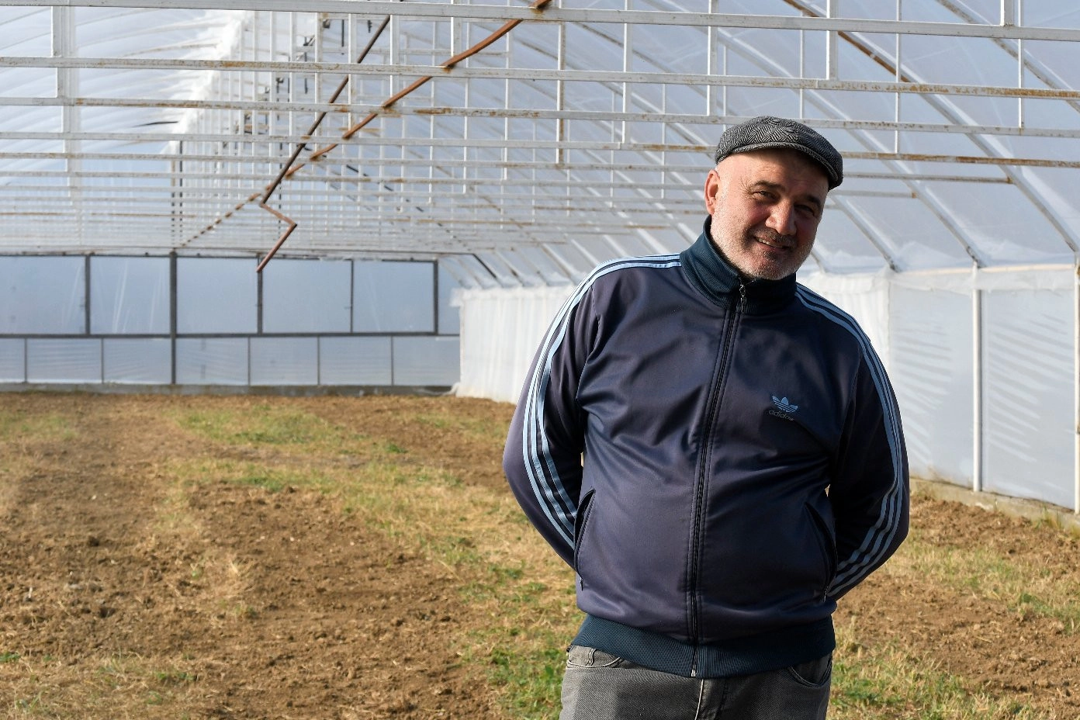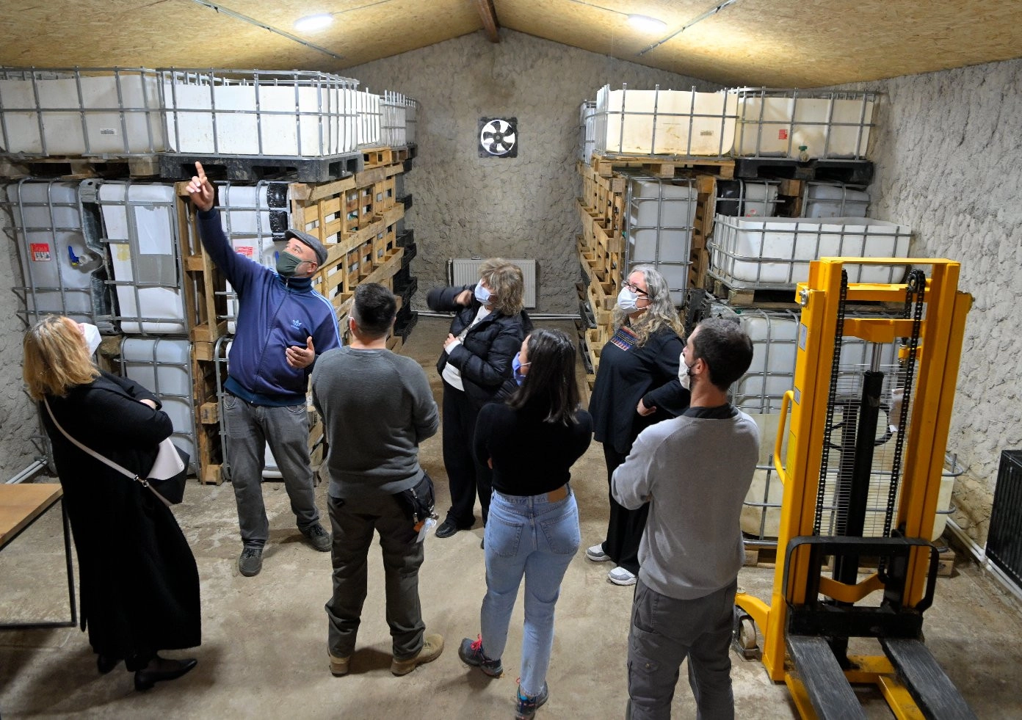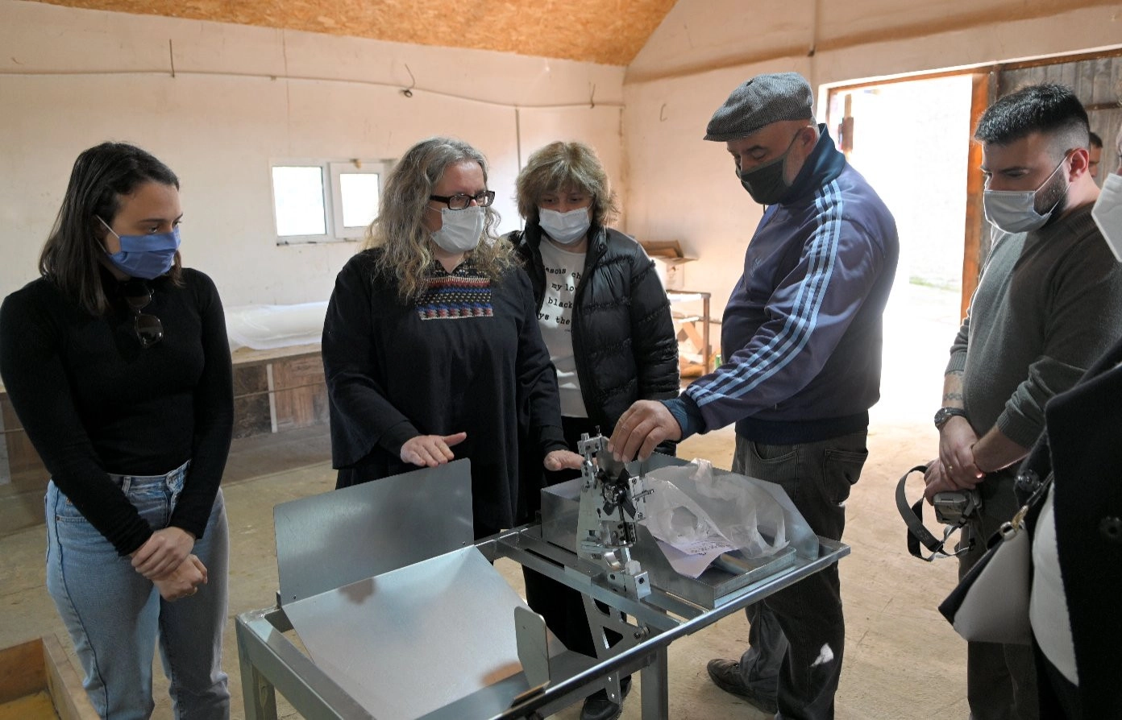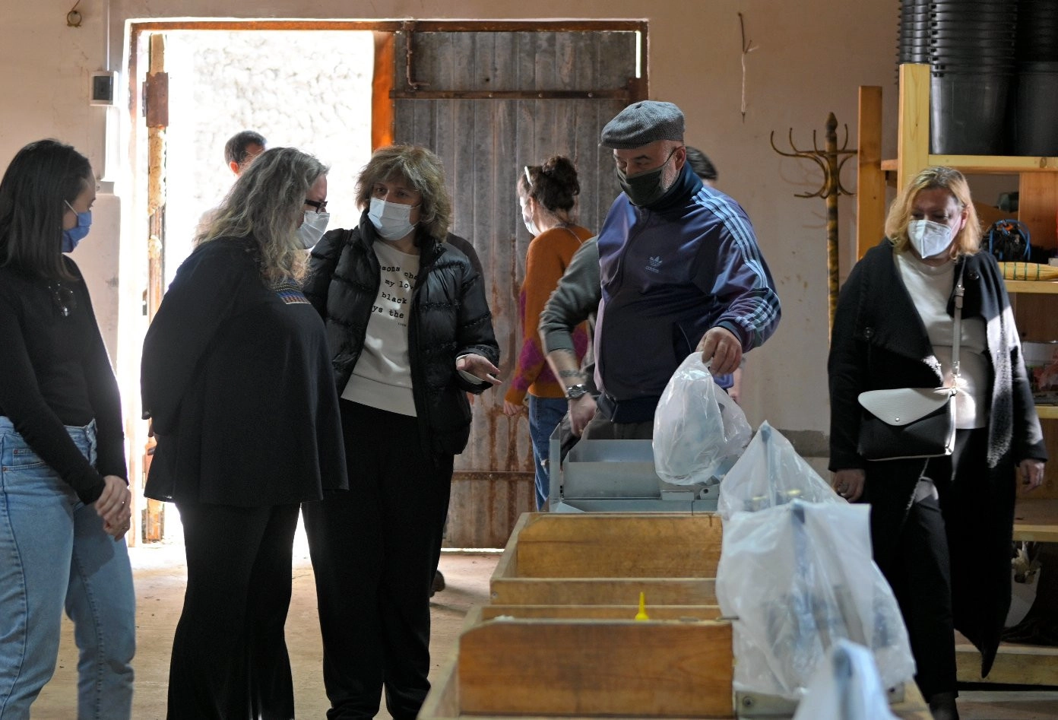
EU4Business and FAO help Georgian grapevine nursery grow by leaps and bounds
Four years ago, Paata Makhatadze decided to bring to life an old soviet-era nursery that used to produce millions of shoots. He, together with his partner Zurab Ghviniashvili, started his agricultural journey with a piece of equipment inherited from his father. They restored the nursery in the village of Vartsikhe and started to produce saplings of endemic varieties of Georgian grapes. Makhatadze’s nursery found support from the European Union through the EU4Business initiative implemented by the Food and Agriculture Organization of the United Nations (FAO).
A good gene pool
Makhatadze’s main idea behind starting a nursery in the village of Vartsikhe was to multiply grape varieties that were native to Georgia. After all, the country is considered the cradle of wine, with winemaking traditions that date back to 6,000 BC. The country has more than 500 varieties of cultivated vines, confirming that cultural viticulture in Georgia is thousands of years old.
“We tried to focus on the varieties that were on the verge of extinction,” explains Makhatadze. “For example, we wanted to make sure that when a farmer was buying a sapling of the Tsolikouri variety, he was buying Tsolikouri, and not another variety. Indeed for a very long time, farmers couldn’t trust which variety they were buying.”
One of the biggest bottlenecks in the wine sector in Georgia is the poor quality of the locally produced saplings. This is changing, as since 2018 and with EU support, FAO is facilitating the process to put in place a certification system for saplings in Georgia. As of 2024, all locally produced saplings will need to be certified to get commercialized. To be able to reach these standards, there is a need for a big change in how private nurseries operate.
A step forward
Makhatadze and Ghviniashvili started the nursery business investing in the facilities and employing 10-15 locals to work on their land. They increased their production, but soon they realised they didn’t have the technical knowledge to be able to meet the new standards to produce certified saplings.
With the support from FAO, they learned how to ensure the genetic purity of the local varieties that they wanted to multiply, as well as the phytosanitary status of their saplings. They were trained on how to implement minimum standards and were also provided with 500 certified rootstocks, that would allow them to multiply rootstock for their operations.
From the beginning, Makhatadze and Ghviniashvili made quality and client satisfaction their priority.
“We do our best to offer high-quality products. We aim to produce the best saplings so that every client is happy. Now people are taking us more seriously,” says Makhatadze. The nursery’s production has tripled from 80,000 to 300,000 saplings produced per year. More production means a bigger workforce and the nursery now employs 35-40 seasonal workers, both men and women, from nearby villages.
“EU4Business and FAO stand by our side so that we can achieve what is necessary to have a certified nursery,” explains Makhatadze. “We listen to their advice and recommendations every step of the way and that brings us closer to our goals.”
The quality of the locally produced saplings is a critical bottleneck of the wine sector in Georgia, to the point that very often grape producers need to import saplings of Georgian endemic varieties from abroad.
“We are joining forces with EU4Business to develop a certification system and support nurseries to reach minimum standards. Thanks to several nurseries that want to reach improved standards, such as Makhatadze’s, we will be able to ensure minimum quality saplings, locally produced and commercialised in Georgia as of 2024,” Javier Sanz Alvarez, FAO Programme Coordinator explained.
The EU Innovative Action for Private Sector Competitiveness in Georgia programme helps Georgian entrepreneurs develop specific clusters and connect with different actors in the industry to enhance marketing and innovation, and strengthen public-private dialogue and ties with the EU. An EU-funded initiative implemented by the FAO and other UN agencies in cooperation with private companies and business associations, the programme is part of EU4Business’s broader initiative for private sector development in Georgia that supports entrepreneurs, helps improve the legal environment, and facilitates access to finance.


